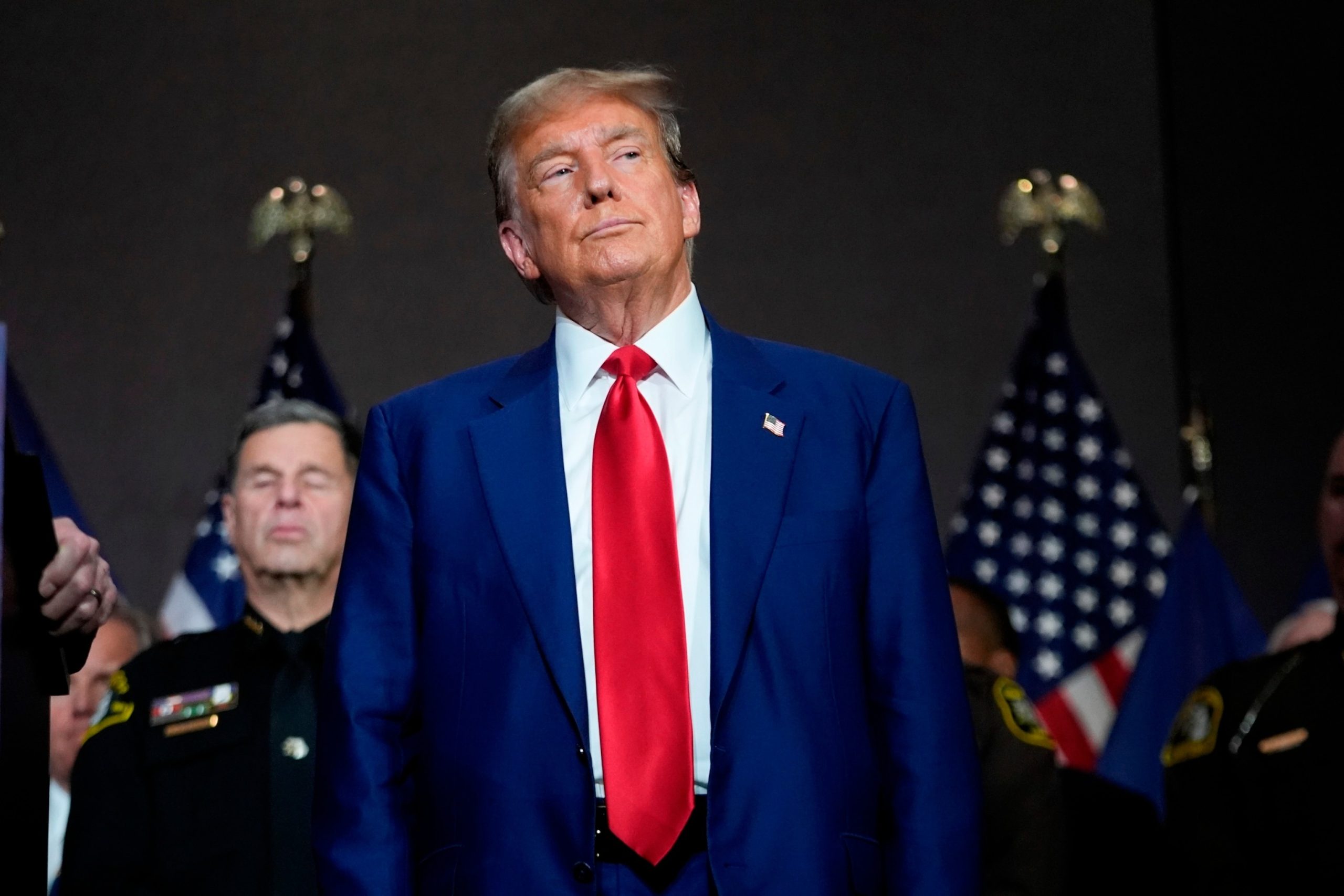The jury selection process for former President Donald Trump’s hush money trial in Manhattan is set to continue into its third day on Thursday. This stage of the trial has been particularly meticulous and challenging, reflecting the high stakes and widespread public interest in the case. To date, seven jurors have been successfully chosen.
The goal is to complete the panel by selecting a total of 18 jurors, which includes six alternates, from the large pool of hundreds of New Yorkers initially summoned. The process of forming a jury in such a high-profile case is inherently complex, given the important media attention and the politically sensitive nature of the allegations.
It requires careful consideration to ensure that the jurors selected can judge the case based on the evidence presented, without preconceived biases influencing their decision-making.
Presidential Candidate Donald Trump (Credits: Colorado Springs Gazette)
The court has faced challenges in this regard, as dozens of potential jurors have had to be excused almost immediately after expressing their inability to remain impartial. These individuals have openly admitted their biases or doubts about their capacity to provide a fair judgment, reflecting the divisive political climate surrounding the case.
Both the defense and the prosecution have limited opportunities to reject potential jurors without providing justification, known as peremptory strikes. Each side began with only a handful of these strikes and they are now nearing their limit.
The strategic use of these strikes is crucial, as both parties aim to shape a jury that they perceive as most favorable to their arguments.
As the selection process resumes, the remaining jurors must be scrutinized not only for their potential biases but also for their ability to withstand the pressures and responsibilities that come with such a high-profile trial. The trial’s outcome could have serious legal and political ramifications, adding to the gravity of the jurors’ role.
Donald Trump (Credits: Salon.com)
The hush money trial involves allegations that Trump was involved in payments made to silence claims of an extramarital affair during the 2016 presidential campaign, thereby impacting the election’s integrity.
The case is not only a legal battle but also a litmus test for the judicial treatment of former presidents and a focal point for national political discourse.
As jury selection moves forward, the balance of ensuring a fair and impartial jury continues to be a delicate task, emblematic of the broader challenges and controversies that define this landmark case.
